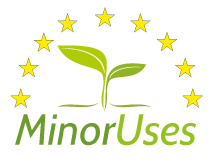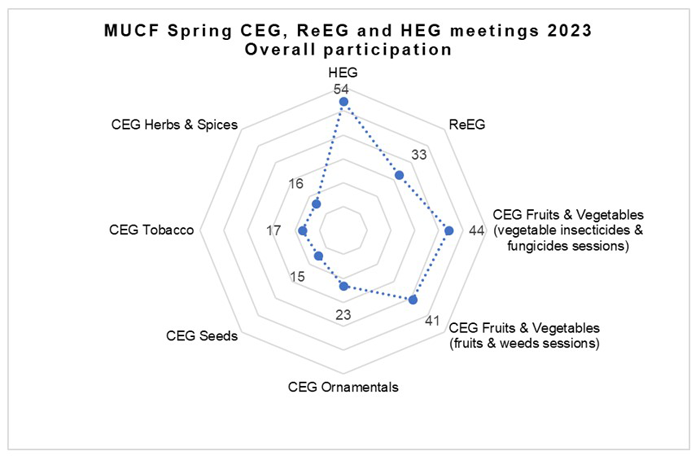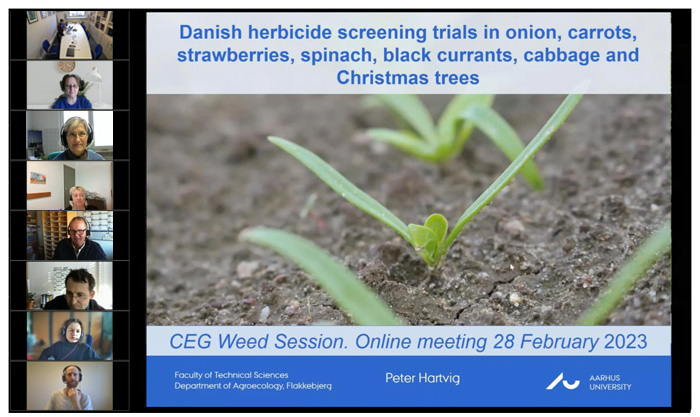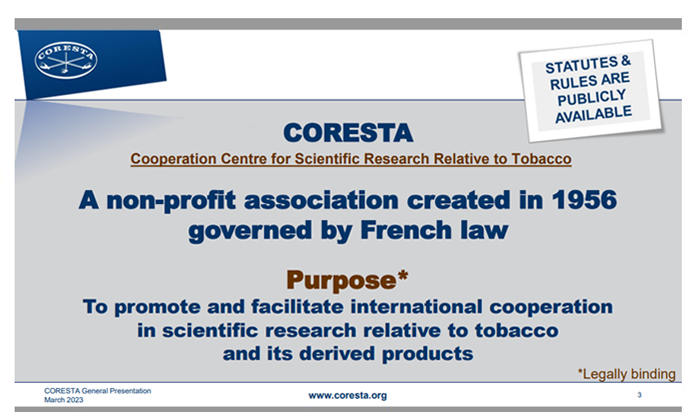|
|

NEWS
from the
European MINOR USES COODINATION FACILITY
Newsletter n° 18 (  Summer Edition Summer Edition  ) )
|
|
|
Dear MUCF community,
Summer and its holidays are getting closer and closer. We at the MUCF would like to wish you a wonderful end of spring, and a joyful summer.
An extraordinary ornamental and a pollinator magnet: Ribes sanguineum (source: Pixabay).
The MUCF team hopes that you enjoy its 18th Newsletter, with news of the Spring expert group 2023 meetings and some updates about what is to come.
Considering the current global challenges, including food security, increase of food prices, climate change and geopolitical conflicts, the need for working together and exchanging information on a pan-European level to find PPP solutions for minor uses needs has never been more prominent.
The continuation and the promotion of the cultivation of minor crops is essential for Europe, directly contributing to increase food security, agrobiodiversity, dietary diversity, and resilience to climate change, among others. Some MUCF working group achievements provide efficient tools for contributing to improve the minor crop production situation in Europe, and they will therefore have a positive impact.
Barbara Edler (Coordinator), on behalf of the MUCF team
|
|
|
Spring meetings
The 2023 Spring meetings were held remotely over several days to allow cross-participation for all the Commodity Expert Groups (CEGs), the Horizontal Expert Group (HEG) and the Residue Expert Group (ReEG). In total, 225 experts from 21 European countries could exchange their views on various minor uses topics. A participation overview per expert group is displayed in the figure below:


All CEG meetings included an exchange on the availability of active substances for minor use needs (crop x pest combination) per country. A status update on active substances that are (i) in the renewal of approval process, (ii) have been renewed, (iii) are approved, or (iv) have been withdrawn, was shared within each group. The experts noted that several active substances were withdrawn during the renewal of the approval process, making adequate and appropriate crop production difficult for the farmers/producers due to a lack of sufficient crop protection solutions.
The commodity expert groups also held individual presentations and discussions on selected topics.

Mr. Peter Hartvig, co-Chair of CEG Fruits and Vegetables, section weeds, presented a summary of herbicide screening trials in vegetables and berries conducted in Denmark.

Screenshot of the presentation: Solanum nigrum and Solanum physalifolium can become a severe issue in open-field vegetables,
for example in carrot production.
Weed issues in fruits and vegetables generated a lot of interest and led to follow-up actions. The CEG Fruits and Vegetables section weeds members decided to conduct a questionnaire on the tools for weed management in different fruit crops, as well as the available alternatives in the event of the non-renewal of the authorisation of Glyphosate in the EU. The first results from this questionnaire will be presented at the Autumn 2023 meeting.
For Ms. Gabriele Leinhos (Germany) co-Chair of CEG Fruits & Vegetables section Fungicides and Insecticides, a valued member of the MUCF, this meeting was the last one before her retirement. We thank her for her implication and expertise in all the years she worked with the MUCF and wish her all the best for the future. The co-Chair position of the CEG Fruits and Vegetables section Fungicide and Insecticide, has been taken over by Ms. Theodora Nikolopoulou (Greece). We thank Ms. Nikolopoulou for her commitment and look forward to working with her.
CEG Fruits and vegetables: position paper on radish leaves:
Following the meeting of the CEG vegetables, the MUCF established a dedicated writing group comprised of several CEG vegetables experts, regarding the setting of Maximum Residue Level (MRL) on radish leaves (for more information on the MRL classification, see https://food.ec.europa.eu/plants/pesticides_en).
Radishes (Raphanus sativus var. sativus RAPSR) are produced throughout the EU, both under protected and open field growing conditions. In total approximately 260 000 tonnes of radishes are grown per year (MUCF data collected from experts, 2021) in the EU. The main radish-producing EU countries are Germany (75 000 tonnes produced on 2 830 ha, 99% outdoor & 1% indoor cultivation), followed by Italy (70 000 tonnes produced on 2 000 ha, 1% outdoor & 99% indoor cultivation), France (45 400 tonnes produced on 3 000 ha, 40% outdoor & 60% indoor cultivation), the Netherlands (25 000 tonnes produced on 120 ha, 100% indoor cultivation), and Belgium (100 tonnes produced on 10 ha, 100% indoor cultivation).
Due to the revision in 2017 (SANTE/10257/2017), new regulation rules apply under Regulation (EC) No 396/2005. This revision, which will enter into force in 2025, allocates radish leaves to the MRL group 'Kales' (Brassica oleracea var. viridis, BRSOA, commodity code number according to Annex I of Regulation (EC) No 396/2005: 0243020). This is creating difficulties for European radish producers. Radishes produced in EU countries will now have to comply not only with the MRL rules set for radish roots, but also with the new MRL rules for the leaves of radishes sold with leaves, even though the leaves are not usually intended for consumption.
This allocation puts a huge part of the indoor radish production in Europe (e.g., 2 830 ha in Germany, 10 ha in Belgium) at risk. To comply with the regulation would require investments for the farmers, to adapt to a harvest without leaves. The harvest will require more energy and will result in products in need of plastic packaging for proper shelf-life conservation, as well as product acceptance marketing. This is in strong contradiction to the purpose of EU Directive 2019/904, which aims to avoid or reduce the impact of certain plastic products on the environment (e.g., in France, effective from January 1st, 2022). Also, radishes without leaves in plastic bags are unlikely to meet the approval of the public, aware of the negative impact of plastic packaging on the environment and the consumer demand for vegetables being ‘fresh’, indicated by green radish leaves. For the radish producers unable to make the investments, this means they would stop radish production altogether.
The writing group is advocating for the allocation of radish leaves to a more suitable MRL group. A position paper explaining the issue, and backing up the proposal with trial data, was circulated to the Pesticide Residues meeting of the Standing Committee on Plants, Animals, Food and Feed (SCoPAFF) on 2023-05-10/11. The topic is still under discussion at the SCoPAFF.
We will keep you updated on the further developments on this topic.

The Tobacco CEG members welcomed the chance to see a detailed presentation by Ms. Fabienne Lalande on the Cooperation Centre for Scientific Research Relative to Tobacco (CORESTA, https://www.coresta.org/), an association created to promote and facilitate international cooperation in scientific research relative to tobacco and its derived products.

Screenshot of the presentation.

The CEG Mushroom members compiled an Excel list of the main harmful organisms on mushroom production. This document contains, among other information, pictures to help mushroom growers identify these harmful organisms.
|
|
|

The HEG meeting focused on exchanging information on regulatory procedures and impediments regarding Reg. 1107/2009.
HEG experts decided to elaborate an abridged draft registration report Part A template for minor uses applications, which could be used on a voluntary basis by dossier applicants and evaluators. A dedicated writing group has already met once at the beginning of June to work and exchange views on this task.
In addition, HEG members welcomed the participation of a Directors Consulting Group (DCG, consisting of the directors of the Competent Authorities in the EU Member States) representative, who presented the work and scope of the DCG and asked for information on actions and responsibilities taken by the EU Member States, as requested by the EU Commission, on the REFIT* of Reg. 1107/2009.
*Evaluations and fitness checks are tools that are used to implement the Regulatory Fitness and Performance programme (REFIT). REFIT is a rolling programme to keep the entire stock of EU legislation under review and ensure that it is 'fit for purpose'; that regulatory burdens are minimised, and that all simplification options are identified and applied (https://ec.europa.eu/food/plant/pesticides/refit_en).
The presentation was followed by a fruitful discussion and exchange between the HEG members on how the existing provisions to extend uses of authorised PPP to minor uses are currently applied, and on the possibilities to learn from each other and harmonise regulatory processes. A written summary report of MUCF deliverables, recommendations, and possible measures to be taken to improve the situation for minor uses in Europe was shared with DCG in June as an agreed-upon meeting follow-up.
|
|
|

New MUCF Working Group: Residue Expert Group (ReEG):
The ReEG was established in 2022 and will work on screening residue trials for possible new MRL extrapolation possibilities proposals. The first meeting of the ReEG was attended by 33 experts from various backgrounds (e.g., government, technical institutes, PPP industry). Mr Jose-Luis Alonso-Prados (Spain) was elected as Chair of the group, and Mr Karsten Hohgardt (Germany) as co-Chair.
|
|
|
We want to thank all the experts for their participation and the fruitful discussions during these meetings.
|
|
|
|
|

MUCF Autumn 2023 meetings:
|
|
|
|
|

|
|
The Benaki Phytopathological Institute (https://en.bpi.gr/Default.aspx), located in Athens, Kifisa 14561, Greece, will host the MUCF Autumn 2023 expert meetings.
|
|
|
We thank the Benaki Institute and the Hellenic Ministry of Rural Development and Food, who provided the MUCF and its members with this opportunity to meet in Athens. We are looking forward to meeting minor uses experts in person at the Benaki Phytopathological Institute. Τα λέμε σύντομα στην Ελλάδα (See you soon in Greece)!
The tentative CEGs, ReEG and HEG autumn meeting schedule is as follows (timing might still be adjusted):
CEG Fruits & Vegetables:
CEG Tobacco:
CEG Fresh Herbs & Spices:
CEG Ornamentals:
CEG Seeds:
Field trip and social get-together:
Plenary Session:
HEG:
ReEG:
|
2023-10-25, 10:00 – 17:30
2023-10-25, 10:00 – 17:30
2023-10-25, 10:00 – 15:00
2023-10-26, 09:00 – 15:00
2023-10-26, 09:00 – 15:00
2023-10-26, 15:00 - 23:00
2023-10-27, 09:15 – 10:00
2023-10-27, 11:00 – 15:00
2023-10-27, 15:30 – 17:30
|
Two MUCF expert groups decided to hold their autumn meetings separately:
CEG Mushroom: to be held remotely, date to be determined.
CEG Hops: 2023-11-27, in-person meeting to be held in Nürnberg, Germany.
Invitations and registration requests to participate to the MUCF Autumn meetings will be shared with the MUCF members by the end of June 2023.
CEG Rice: No meeting planned for 2023 as the position of Chair of the CEG Rice is still vacant.
Global Minor Use Summit IV
|
|
|
|
|

|
|
The Global Minor Use Summit IV will take place on 5 – 9 of February 2024 in Madrid. Organised by the US Minor Use Foundation, it will bring together growers, regulators, researchers, and crop protection professionals.
|
|
|
Relevant information can be found under the following link: https://minorusefoundation.org/gmus-4/.
The MUCF is participating in the Organizing Committee of the Summit and will keep you regularly posted about the agenda and relevant meeting information. Stay tuned!
|
|
|

The EUMUDA homepage has been updated with countries’ criteria to define a minor/major crop and a minor/major use.
If you are interested in the information currently available at the MUCF, follow this link: https://www.eumuda.eu/.
|
|
|

PUBLICATIONS ON MINOR USES:
Kemezys, AH, Hartvig, P, Ingvordsen, K, Andersen, PE & Jensen, M (2022) Results of crop protection trials in minor crops in 2021. in Applied Crop Protection 2021. Aarhus Universitet - DCA - Nationalt Center for Fødevarer og Jordbrug, Tjele, DCA Report, no. 204, pp. 84-91.
https://dcapub.au.dk/djfpublikation/djfpdf/DCArapport204.pdf.
This publication contains results from crop protection trials which were carried out at the Danish Department of Agroecology within the area of agricultural crops. Most of the results come from field trials, but results from greenhouse and semi-field trials are included.
The report contains results that provide information on:
• Effects of new pesticides.
• Results of different control strategies, including how to control specific pests as part of an integrated control strategy involving the use of different cultivars and control thresholds.
• Results on pesticide resistance.
• Trial results from different cropping systems.
|
|
|

MUCF LINKEDIN:
 |
The MUCF LinkedIn page recently gained its 100th follower.
Next step, 1000! Please follow us to achieve our goal! |
|
|
|
|
|
